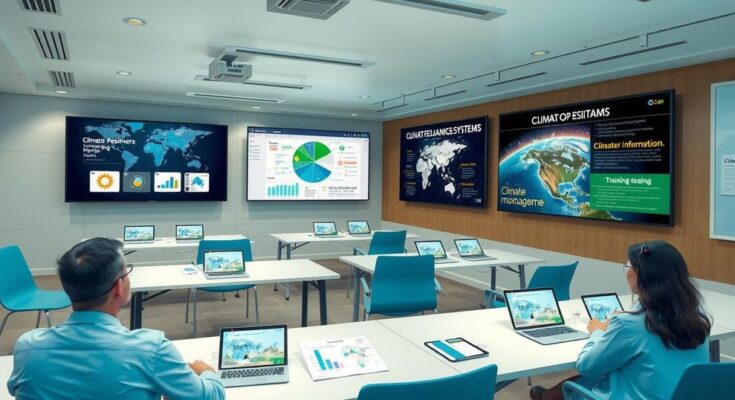A collaborative workshop by UNDRR, GCF, and BOAD in Incheon focused on disaster risk management and climate resilience strategies for Togo. It aimed to build capacity among national stakeholders through practical training and discussions on implementing early warning systems and disaster risk reduction frameworks. The workshop concluded with a commitment to enhance partnership efforts in Togo’s climate resilience project.
From April 8 to 11, 2025, the United Nations Office for Disaster Risk Reduction (UNDRR) collaborated with the Green Climate Fund (GCF) and the West African Development Bank (BOAD) to conduct a technical Training of Trainers workshop in Incheon, Republic of Korea. This workshop aimed to strengthen disaster risk management and climate adaptation efforts among Togo’s national stakeholders, as a component of the GCF co-funded project focused on enhancing resilience in areas vulnerable to climate and disaster risks.
Key representatives from Togo’s institutions, including the National Agency for Civil Protection (ANPC) and the Togolese Meteorological Agency (ANAMET), participated in various training sessions. These sessions addressed essential topics such as disaster risk reduction, climate change adaptation, multi-hazard early warning systems, and considerations for gender mainstreaming and equity. Participants also explored global frameworks related to disaster management, such as the Sendai Framework and the Paris Agreement, facilitating discussions on the GCF co-financed initiative’s design and financing.
In addition to theoretical training, practical tools including the Sendai Framework Monitor Custom Indicators were presented, designed to aid national and local disaster risk reduction planning. Participants received insights from international collaborators and observed the operational aspects of the Republic of Korea’s integrated disaster management systems, highlighting advancements in disaster communication and technology in real-time monitoring and alert systems.
The workshop culminated in a field visit to the Incheon Metropolitan City Safety Situation Division, where participants gained firsthand experience of the city’s integrated disaster response systems. Officials shared their strategies for utilizing digital tools to enhance emergency response capabilities, inspiring Togo’s representatives to apply new techniques in their own disaster management efforts. Feedback from participants emphasized the invaluable inspiration derived from this visit to inform local practices and operations.
The closing discussions stressed the need for strong national coordination and the importance of applying the acquired knowledge toward the successful implementation of the SAP048 project in Togo. The trained individuals plan to train more national stakeholders to enhance the overall disaster preparedness and resilience of communities at risk, marking a significant step in Togo’s climate resilience journey.
Participants expressed an enthusiasm for the lessons learned and the collaborative spirit fostered during the workshop, indicating a shared commitment to improving disaster risk management practices and embracing new initiatives as part of their national strategies. The close of the workshop signified a unified approach toward tackling the challenges posed by climate change in Togo’s vulnerable communities.
The collaborative workshop between UNDRR, GCF, and BOAD has equipped Togo’s key stakeholders with essential skills and knowledge for improving disaster risk management, particularly in relation to climate resilience. The integration of practical experiences and advanced tools for early warning systems was instrumental in fostering inspiration among participants. This initiative marks a critical step forward in ensuring that vulnerable communities in Togo benefit from robust disaster management strategies and effective early warning systems.
Original Source: www.preventionweb.net




